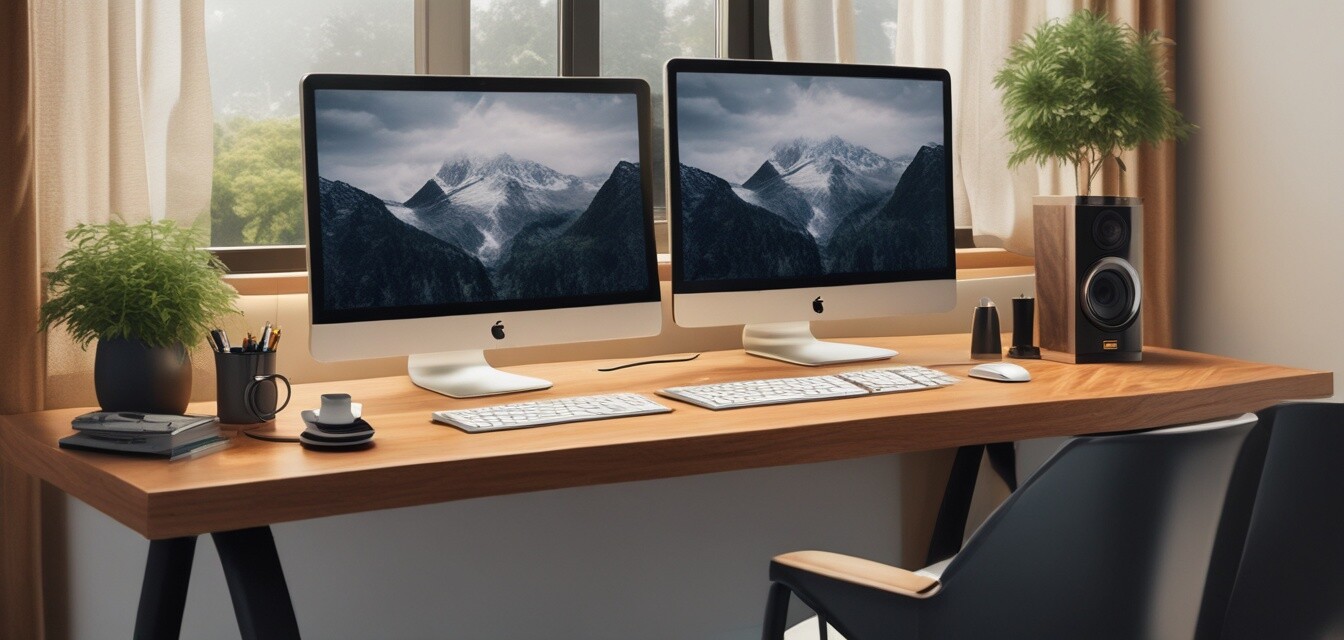
Evaluating the Best Desk Materials for Home Offices
Key Takeaways
- Different desk materials influence aesthetics, functionality, and durability.
- Wood, metal, and glass are popular options with distinct advantages.
- Maintenance requirements vary by material and can affect long-term use.
- Choosing the right desk materials can enhance your workflow and workspace comfort.
The desk you work at can heavily influence your productivity and comfort level. When setting up a home office, selecting the right desk material is crucial. Various materials offer different aesthetics, durability, functionality, and maintenance needs. In this guide, we'll explore the most popular desk materials available, their pros and cons, and which scenarios best suit each type.
Popular desk materials
| Material | Aesthetics | Functionality | Durability | Maintenance |
|---|---|---|---|---|
| Wood | Warm and classic | Versatile; good for all uses | Moderate to high | Regular polishing required |
| Metal | Modern and sleek | Strong and sturdy | High | Low maintenance |
| Glass | Contemporary and clean | Stylish but may require careful setup | Moderate | Frequent cleaning required |
| Laminate | Varied designs available | Budget-friendly; easy to clean | Moderate | Low maintenance |
| Particleboard | Affordable and practical | Usually lighter and easier to move | Low to moderate | Poor resistance to water |
Wooden desks
Wood is a classic choice for office furniture. Not only does it provide a warm and inviting atmosphere, but it also offers excellent durability. Solid wood desks can last for years, making them a sound investment. However, they do require a bit more maintenance to keep them looking their best.
Pros
- Stylish and timeless appearance
- Durable and robust
- Can be refinished if damaged
Cons
- Higher price point
- Requires regular care
- Susceptible to scratches and water damage
Best uses for wooden desks
Wooden desks are ideal for professional environments and home offices where aesthetics are a priority. They can serve as a focal point in your workspace, infusing warmth and character into the room.
Metal desks
If you are looking for a modern and industrial vibe, metal desks are a great choice. They offer exceptional sturdiness and require minimal maintenance. Metal also pairs well with various other materials, such as glass or wood, allowing for varied designs.
Pros
- Strong and long-lasting
- Low maintenance required
- Available in various finishes
Cons
- Can be heavy and difficult to move
- Limited warmth compared to wood
- May not suit traditional decor
Best uses for metal desks
Metal desks often work great in contemporary home offices or industrial-style settings, providing a robust option that requires less upkeep. Their sleek designs help achieve a modern look.
Glass desks
Glass desks are known for their clean and elegant appearance. They can create an open feel in smaller spaces while providing ample workspace. However, they require more cleaning and can be prone to scratches, so they may not be for everyone.
Pros
- Stylish and contemporary look
- Creates an illusion of space
- Easy to pair with various styles
Cons
- Requires frequent cleaning
- Can scratch or shatter easily
- May require supports for heavy items
Best uses for glass desks
Ideal for modern home offices, glass desks can enhance any setup where visibility and openness are crucial. They work well in creative spaces or as a stylish minimalist choice.
Laminate desks
Laminate desks provide a budget-friendly option without sacrificing style. They are made from engineered wood and come in various designs, making them easy to match with other furniture. Additionally, they are resistant to scratches and easy to clean.
Pros
- Cost-effective option
- Available in numerous styles
- Low maintenance required
Cons
- Not as durable as solid wood
- Can peel or warp under heavy use
- Less refined appearance
Best uses for laminate desks
Perfect for students or budgets, laminate desks serve well in casual settings where style isn't the sole focus. They are also suitable for temporary setups or children’s homework areas.
Particleboard desks
Particleboard is an economical choice made from wood particles and adhesives. While they may not last as long as other materials, they can be perfect for those who need a lightweight desk for temporary use.
Pros
- Very affordable
- Lightweight and easy to move
- Available in various designs
Cons
- Lower durability
- Can be affected by moisture
- Limited lifespan
Best uses for particleboard desks
Ideal for temporary setups or for students, particleboard desks are practical solutions for those who don’t need long-lasting furniture. It's also suitable for occasional use.
Choosing the right desk for your home office
When deciding on the best desk material for your home office, consider the following factors:
- Functionality: Do you need a sturdy work desk or something with more design flair?
- Aesthetics: How does the material fit with your overall office design?
- Maintenance: Are you willing to commit to regular upkeep, or do you prefer a low-maintenance option?
- Budget: How much are you willing to spend on your desk?
With a variety of options available, each offering unique benefits, there is undoubtedly a perfect desk material for everyone. To further optimize your home office setup, consider pairing your desk with ergonomic chairs and effective storage solutions found in our Ergonomic Chairs and Office Furniture sections.
Conclusion
The right desk material is crucial in creating a productive and enjoyable workspace at home. Whether you prefer the elegance of wood, the sturdiness of metal, or the modern look of glass, choosing a desk that aligns with your needs and style will enhance your home office significantly. Explore various options and don’t hesitate to invest in a desk that reflects your personal style while complimenting your workspace needs.